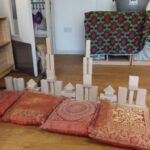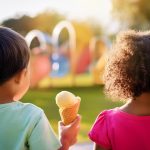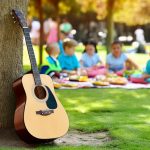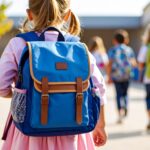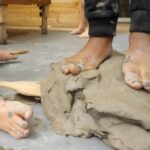Rationale:
At St Pauls learning in the early years is celebrated and promoted as a profoundly important stage of a child’s life when vital emotional, social, physical and intellectual development takes place.
We believe that from birth, children are strong, competent, motivated and confident learners who explore and test their ideas, solve problems and try to make sense of their world. We recognise that learning needs to be first hand, experiential and active; it should promote children’s independence and autonomy, encouraging them to take responsibility for their own learning – initiating and making decisions. Learning needs to take place in the social context and we believe ‘talk’ is central to the learning process We also understand that learning cannot take place unless children’s emotional needs are met and they feel safe to take risks.
We believe that parents/ carers are the first and most enduring educator who has the most impact on their child’s life and education. Therefore, we work in partnership with parents to seek their perspective of their child to inform planning a meaningful and purposeful curriculum based on the interests and strengths of their children.
We value the process of learning utmost and understand that young children have the right to communicate and explore their learning in many different ways.
Above all we believe that learning is ‘learnable’, and strive to support children to develop specific learning capacities which will enable them to be effective lifelong learners.
Learning happens best when it exercises and challenges the learner’s capacities as they emerge at a given developmental level; when it encourages them to develop talents. Young children need time and space to become resilient lifelong learners.
Aims:
Though effective learning and teaching opportunities we will ensure that all children are enabled to:
- Feel valued as an individual
- Show enthusiasm and confidence with high self-esteem and self-worth
- Be independent, curious, creative and resilient learners, researching the world around them, following their own fascinations
- Be courageous and take risks, challenging themselves and each other
- Know they have a voice, feel heard and that they can make a difference
- Be able to identify and communicate their own needs and feelings
- Be empowered to meet their own needs
- Respect themselves, each other, their communities and environment
- Feel safe and secure and have a sense of belonging and strong attachments
- Establish effective and supportive relationships and be able to work collaboratively
- Know themselves as a learner, leading and co constructing learning experiences in a meaningful way to develop mastery
- Have high aspirations, build on their previous best and excel in whatever they choose to do
Guidelines:
We use the following strategies to support the children in developing all of the above:
The role of the practitioners
- To have a firm understanding of child development and an awareness of age appropriate needs, behaviour and learning
- Key Person role embedded to support strong attachment and containment
- Be attuned to individualised feelings, needs, fascination and lines of enquiry
- Be attentive to any patterns of play that may be emerging or reflecting and emotional need
- Encourage children to communicate in a variety of ways and value 1st language and cultural heritage
- Develop planning that is personalised, challenging but achievable
- Ensure quality interactions which scaffold and prompt thinking, building on children’s interests, strengths and questions
- Encourage and support children’s interactions with other children and adults.
- Model feelings, learning characteristics and researchful learning
- Model language of learning and exploration of emotional well- being
- To be attentive to the 4 principles of Assessment for Learning : learning intentions, feedback, questioning and self-evaluation/challenge
- Support children to become mastery learners- to ask questions, take and evaluate risks, develop resilience and have ownership for their learning
- To ensure the environment is safe, calm, purposeful, challenging and supportive.
- To provide inspiring learning experiences and provocations in which children can become the leaders
- To maintain ‘practice’ leadership ensuring authentic connection with daily practice
The enabling emotional and physical environment
- The daily routine is structured to include time for personal exploration, small and large group sessions and social experiences.
- The routine ensures time for children to repeat, revisit and reflect on their previous experiences, which includes a long, uninterrupted ‘explore time’ during which children can really ‘get lost’ in their learning
- The routine is always consistent, thus ensuring children feel secure and are able to operate independently. Within the elements of the daily routine varied and enriching experiences are planned to maintain and stimulate children’s attention and learning.
- Children are emotionally contained in a small consistent group – their home base is supported with pictures displayed of their families or other significant people
- Boundaries are clear and consistent across the setting
- Children are empowered to manage their feelings, keep themselves safe and resolve conflicts using the Conflict/Resolution steps alongside emotionally literate adults.
- Children have continual, free flow access an environment both inside and outside at all times
- Planning for the environment is informed by children’s interests, their learning styles and preferred ways of communication
- Resources are easily accessible, plentiful, well maintained and organised and appropriate – with an emphasis on open ended exploration and collaborative learning
Developing Learning Power
We believe that children can become confident lifelong learners if equipped with the appropriate skills, attitudes and capacities for learning from an early age. Children need to become Resilient, Resourceful, Reflective and Reciprocal Learners (Claxton). In order to develop these appropriate attitudes we:
- Enable children to initiate and carry out their own activities and make independent choices and decisions
- Encourage children to find, use and replace equipment and resources independently (in an organised, labelled and accessible learning environment).
- Encourage the children to make plans, modify plans, review and reflect on their own learning.
- Set challenges for children and support them through the process of problem solving.
- Model and use the language of learning with both children and adults alike
- Use and encourage use of open ended and challenging questioning techniques
- Model ‘being stuck’ and learning from mistakes
- Using consistent strategies for what to do if you get stuck!
- Encourage collaboration
- Enable children to see each other as tools for learning as well as the teaching staff
- Developing noticing skills
- Encourage absorption, and an awareness of distractions
- Plan for varied imaginative play situations
- Encouraging children to make connections from their experiences and explore possibilities.
This goes beyond the effective characteristics of learning identified in the EYFS.
Parents in Partnership:
Parents and carers are fundamental in their children’s development and learning therefore we actively seek to learn from them and share with them in all aspects of their child’s learning.
We foster this relationship through:
- An ethos of openness and honesty, that encourages parents /carers to share their knowledge, understanding, hopes and concerns with us
- Opportunities to listen to and value personal histories
- An open learning community – sharing and celebrating ALL our learning
- An open door policy – all parents can join us at any point
- Opportunities for parents/child/practitioner to co-construct learning priorities and document children’s learning and interests
- Regular Learning Diary Weeks
- Up to date communication through website, texts, newsletters, noticeboards, displays etc and consultation
- Ensuring access and removing barriers to engagement
- The key person system, which supports authentic and meaningful relationships
- Home-visiting
- Providing 1 : 1 support, workshops and training opportunities though an empowerment model
Assessment and Planning:
We are committed to narrowing the gap, ensuring that no child underachieves, especially those from identified underperforming or underrepresented groups and those living in poverty.
We believe that every child has the right to a well-planned and meaningful curriculum that will provide them with the tools needed to succeed throughout their lives, regardless of culture, social class, gender, physical and cognitive capabilities and beliefs. Regular monitoring and evaluation of children’s progress enables us to continually adjust our provision in response to any areas of underachievement that may be identified.
We plan using the revised Early Years Foundation Stage (EYFS) guidance 2012 and the Accounting Early for Life-long Learning Programme (AcE).
Assessment is a fundamental part of the planning process. To help us decide what to provide we observe children in their play in a range of situations. “On-going formative assessment is at the heart of effective early years practice.” (Revised EYFS 2012 p.3)
We respond to the development and learning of each child by planning a range of experiences which include the Prime and Specific areas of learning and the Characteristics of Effective Learning.
Diversity and inclusion are our priority and therefore we differentiate our planning and provision to ensure every child can access the learning experiences at their stage of development. No child is excluded from activities.
Long Term Planning:
- Our School and Centre Improvement Plan (CIP) supports our long term plan
- We have a range of policies for learning and teaching including; Inclusion and SEN, Transition, Parent Partnership
- We have developed quality criteria for adult interactions and an enabling environment which inform our practice development
- The revised Early Years Foundation Stage (EYFS) 2012 provides our long term plan for learning across the Prime and Specific areas
- We plan for continuous provision inside and outside.
Mid Term Planning:
- Termly data for groups of children is collected which informs the termly plan with possible learning foci which will meet the needs of the children
- Plans are informed by contributions from the parents, practitioners and the children to ensure learning experiences are drawn from the interests of the children
- Plans are evaluated to ensure breadth and challenge
- Longer term plans or research projects can be resourced for optimum learning, and will be planned to engage children, parental and practitioners and may involve the work of our artist
Weekly/Daily Responsive Planning:
- Staff hold daily evaluation meetings which enables them to reflect on children’s self-initiated learning, interests and possible lines of enquiry etc.; this informs the provision plan for the next day
- Daily adult led ‘group times’ ensure that every child accesses a broad and balanced curriculum across the Prime and Specific areas of learning
- Group and individual interests may be identified which may develop focus plans to extend across a week
Assessment tools
We use a range of assessment tools to assess children’s development and progress:
- Revised EYFS Development Matters statements for the Prime and Specific areas of learning
- The Accounting Early for Life Long Learning Programme (AcE) Domains to assess: The Characteristics of Effective Learning, Attitudes and Dispositions to Learn, Social Competence and Self Concept and Emotional Well Being
- Bristol Every Child a Talker (BECAT) to identify children who need additional support with: Listening, Understanding, Social and Expressive language development.
- Laevers Levels of Involvement and Well Being
The revised EYFS Development Matters statements support us in being able to assess children’s progress and identify next steps in their learning for the seven areas of learning and development. It also helps us to evaluate the provision, celebrate achievements and plan for improvements.
All our teaching is based on our knowledge of the children’s current learning, interests and developmental stage. This knowledge is gathered and continually updated through a variety of on-going assessments, which take the form of:
- Daily observations (Learning Diaries)
- Termly entry in Child Observation Records, which show progress children make as data (including a baseline assessment)
- 3 x year joint target setting with parent/practitioner for individual children
- Learning stories
- Video, photo documentation
- Work samples.
Following an in house research project that supported staff to deepen their understanding of young children’s patterns of play in a way which enables the them to hold the child as leader in all our learning St Pauls Nursery School & Children’s Centre have developed their own
Reflective Planning Wheel.
This leads practitioners through the continuous cycle of reflecting on : context, assumptions, questions, distilling of learning and challenge.
Each teaching team uses whiteboards to document their ‘wonderings’ about children’s learning, or how they have responded to new provocations. This informs both planning and shifts in practice.
Agreed: December 2013
Review: December 2015

